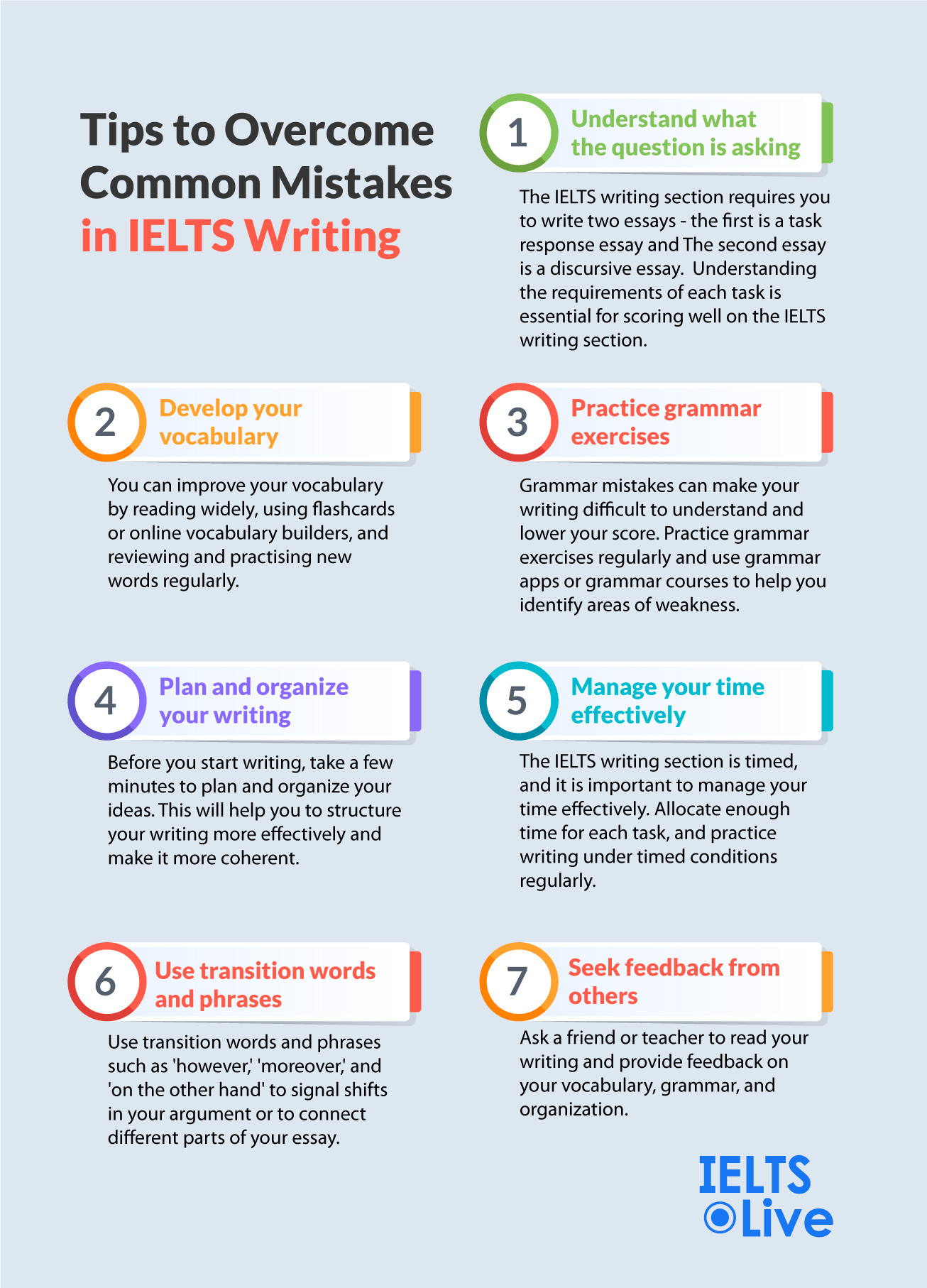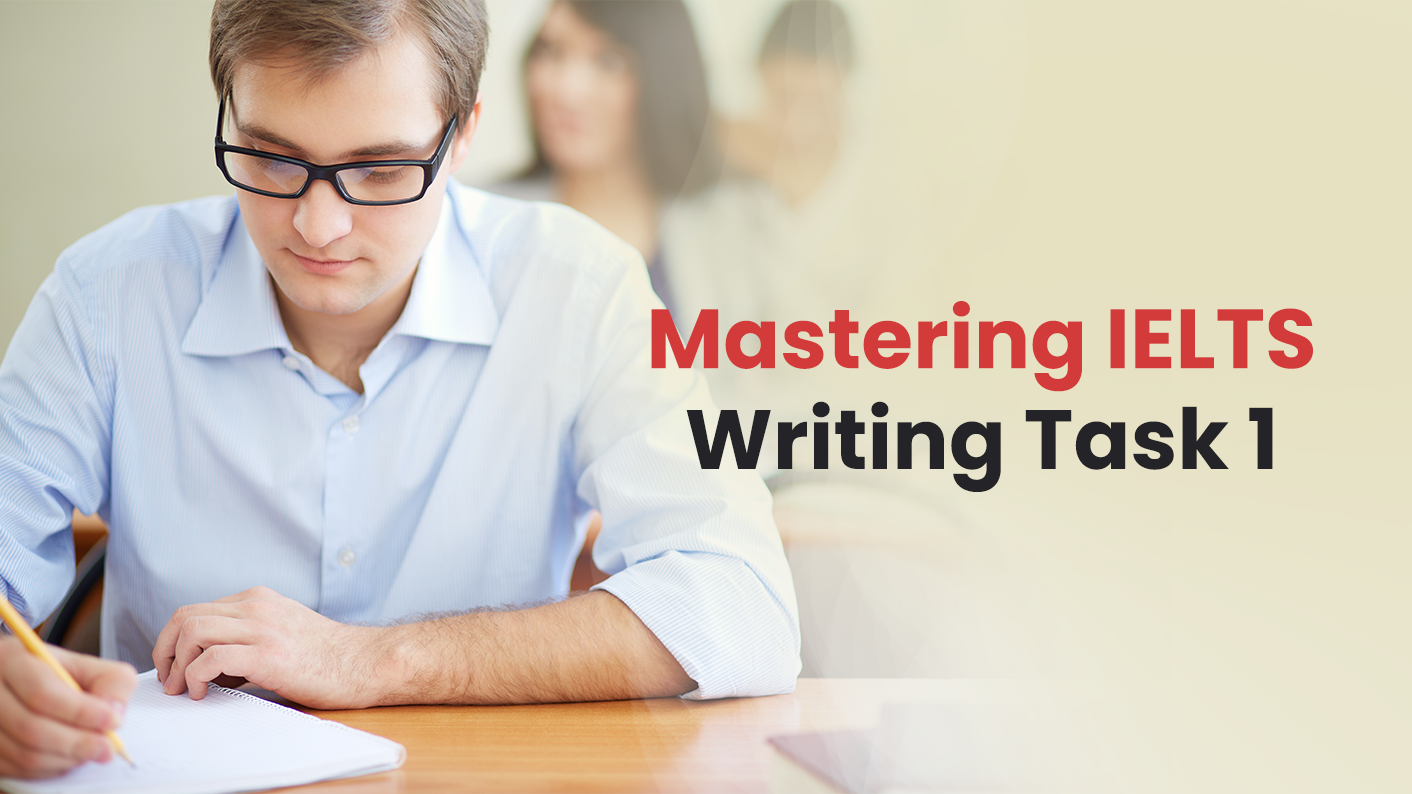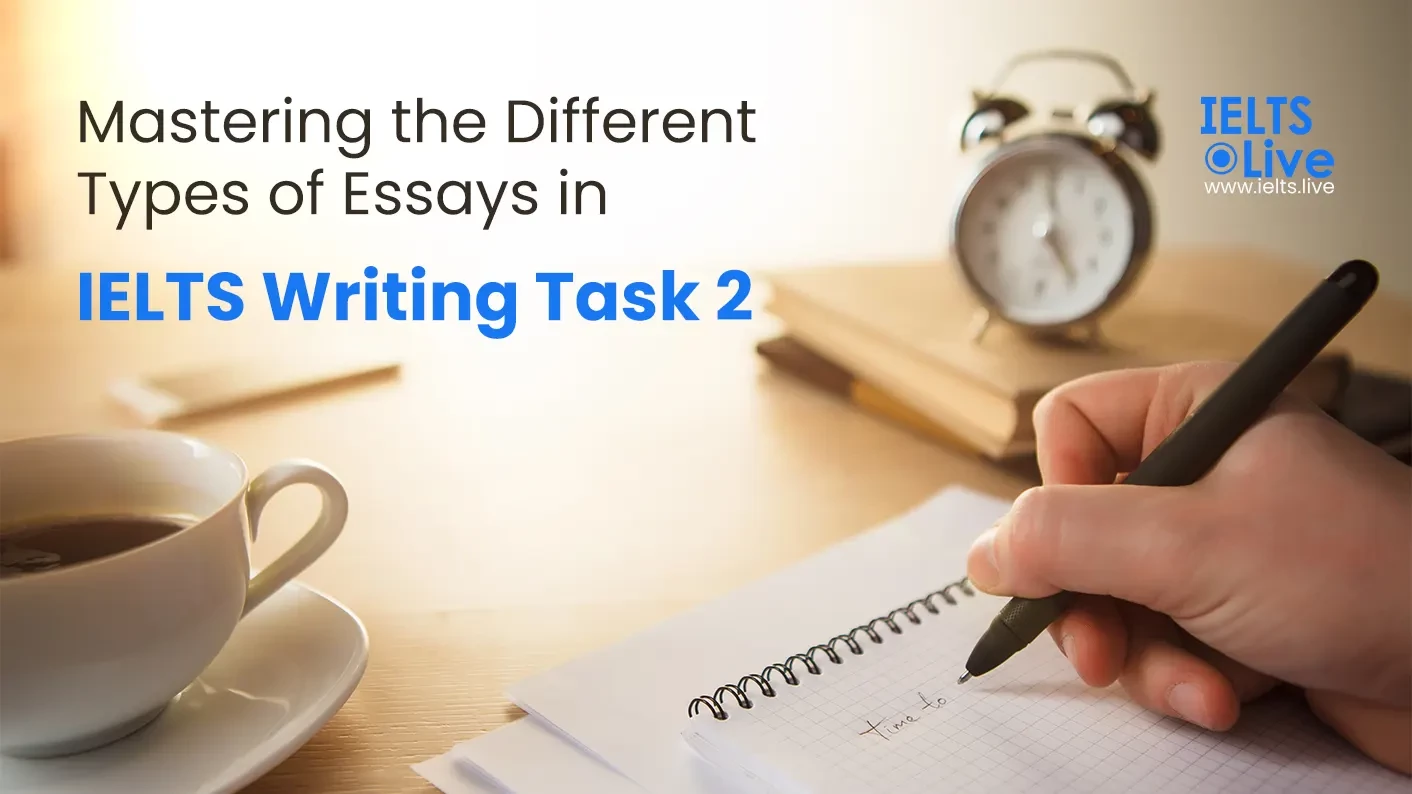
The IELTS Writing module serves as a significant challenge for many test takers striving to achieve their desired band score.
Despite possessing a strong command of the English language, candidates often stumble upon common mistakes in IELTS writing that can hinder their performance.
From grammar and vocabulary errors to structural and coherence issues, understanding these common pitfalls is crucial to enhancing your writing skills and maximizing your score.
Here, we will explore some of the most prevalent mistakes encountered in IELTS Writing and provide valuable insights and strategies to help you steer clear of them, ultimately boosting your chances of success.
You may also like: Mastering IELTS Writing Task 1: tips and strategies for success
Common Mistakes in IELTS Writing
Before we get into the tips and tricks let us look at the mistakes that most candidates make while taking the IELTS writing test;
1. Spelling Error:
One of the most basic, yet crucial, mistakes is spelling errors. They make your piece look unprofessional and can easily change the meaning of your sentences.
Another common mistake is repeating the same words, which can bore your reader and signal a lack of vocabulary. Be sure to mix up your vocabulary to keep your reader engaged.
2. Incorrect Verb Form:
Using the incorrect verb form is another common error. It's essential to use the correct verb tense and match it with the intended meaning of your sentence.
Punctuation is equally important in conveying the intended meaning of your writing. A little punctuation error can make a huge difference in the message you're trying to convey.
3. Incomplete or improper punctuation
Punctuation is often neglected by non-native speakers but it is something on which you'll be marked on your IELTS exam.
The well-known example of (Let's eat grandma!) versus (Let's eat, grandma!) demonstrates how a minor punctuation error may completely change the meaning.
In addition, punctuation is one of the language assets examined in the writing section. A strong grasp and application of punctuation can undoubtedly improve your score.
4. Limited Vocabulary:
One of the most significant hurdles for non-native speakers is a limited vocabulary. When writing in English, it is essential to have a wide range of vocabulary to express complex ideas and arguments.
This can be particularly challenging for non-native speakers who may not have been exposed to the same level of English vocabulary as native speakers.
However, there are several creative ways to improve your vocabulary. One way is to read widely, including books, newspapers, and online articles, and make a note of any new words you encounter.
Another way is to use flashcards or online vocabulary builders, which can help you to learn and retain new words more effectively.
5. Poor Grammar:
Grammatical errors can make your writing difficult to understand and negatively impact your score. However, there are several creative ways to improve your grammar.
One way is to watch English-language movies or TV shows with subtitles. This can help you to identify common grammar structures and sentence patterns.
Another way is to use grammar apps or online grammar courses, which can provide instant feedback and help you to identify areas of weakness.
You may also like: Grammar For IELTS Preparation: The Secret Weapon To Achieve Your Dream Score!
6. Difficulty organizing ideas:
Writing in a coherent and structured manner can be challenging, especially if you are not used to writing in English.
However, there are several creative ways to improve your organizational skills. One way is to practice mind mapping or brainstorming, which can help you to generate ideas and organize them into coherent structures.
Another way is to use a writing template or outline, which can provide structure for your essay and help you to organize your thoughts more effectively.
7. Time management:
Poor time management can lead to incomplete or rushed essays, which can negatively impact your score. However, there are several creative ways to improve your time management skills.
One way is to practice writing under timed conditions regularly, which can help you to develop a sense of how long each task should take.
Another way is to use a timer or stopwatch when practicing, which can help you to stay focused and on task.
Tips to Overcome Common Mistakes in IELTS Writing
Preparing for the IELTS writing section can be a challenging task since you have to use all kinds of knowledge and skills to complete this section. This is especially harder for non-native speakers.
However, by understanding and overcoming the hurdles of writing in English, you can improve your skills and achieve a high score on the IELTS writing section. Here are some tips that can help you to succeed:
1. Understand what the question is asking:
The IELTS writing section requires you to write two essays - the first is a task response essay that requires you to analyze a given question and provide a clear and coherent argument in response.
The second essay is a discursive essay that requires you to analyze a given topic and present your arguments in a balanced and objective manner. Understanding the requirements of each task is essential for scoring well on the IELTS writing section.
2. Develop your vocabulary:
As discussed earlier, having a wide range of vocabulary is essential for expressing complex ideas and arguments.
You can improve your vocabulary by reading widely, using flashcards or online vocabulary builders, and reviewing and practising new words regularly.
3. Practice grammar exercises:
Grammar mistakes can make your writing difficult to understand and lower your score. Practice grammar exercises regularly and use grammar apps or grammar courses to help you identify areas of weakness.
4. Plan and organize your writing:
Before you start writing, take a few minutes to plan and organize your ideas. This will help you to structure your writing more effectively and make it more coherent.
Use a template or outline to guide your writing, and practice using mind mapping or brainstorming to generate ideas

5. Manage your time effectively:
The IELTS writing section is timed, and it is important to manage your time effectively. Allocate enough time for each task, and practice writing under timed conditions regularly.
Usually, most candidates prefer keeping 20 minutes for writing task 1 and 40 for writing task 2.
6. Use transition words and phrases:
Transition words and phrases help to connect your ideas and make your writing more coherent.
Use transition words and phrases such as 'however,' 'moreover,' and 'on the other hand' to signal shifts in your argument or to connect different parts of your essay.
7. Seek feedback from others:
Feedback from others can help you to identify areas for improvement and can help you to develop your writing skills.
Ask a friend or teacher to read your writing and provide feedback on your vocabulary, grammar, and organization. You also use our $1 service on IELTS.Live to get feedback on your writing.
To sum it up, the IELTS writing section is undoubtedly a challenge, but it's not an insurmountable one. With some effort and the right approach, you can conquer it. By working on your language skills, planning your writing, managing your time wisely, and seeking feedback, you'll be on your way to success.
Don't forget to incorporate transition words and phrases, which are like the glue that holds your writing together. So, take a deep breath, stay focused, and keep practising. Before you know it, you'll be well on your way to nailing that IELTS writing section!
Good luck!










0 COMMENTS